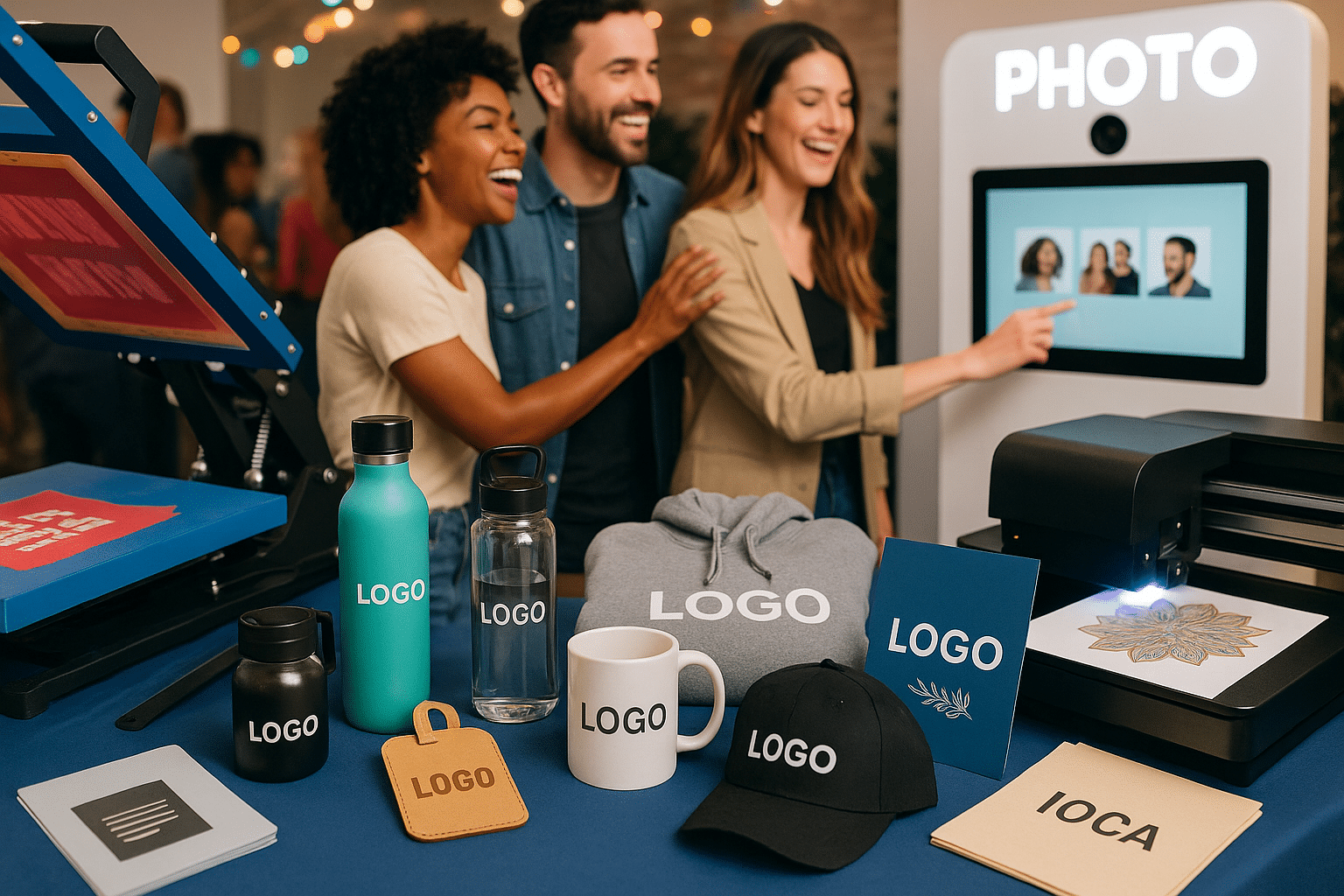Ultimate Guide to Event Planning: Tips, Trends, and Inspiration for Unforgettable Experiences
Ultimate Guide to Event Planning: Tips, Trends, and Inspiration for Unforgettable Experiences

Planning an event requires creativity, organization, and strategic marketing. From DIY inspiration to engaging interactive trends, this guide explores essential tips, behind-the-scenes insights, and success stories to elevate your event planning skills. Whether you’re considering hiring a photo booth or incorporating unique swag items, discover how to make your event a memorable one.
The Essentials of Event Planning
When embarking on the journey of event planning, there are several foundational elements that must be mastered to ensure a successful and memorable experience. Understanding the essential components of budgeting, scheduling, and venue selection is crucial for any event planner. Each of these elements influences the outcomes of an event and contributes to its overall atmosphere, engagement, and success.
**Budgeting** forms the backbone of event planning. Before making any decisions, it’s imperative to establish a clear budget. This involves identifying all potential expenses, ranging from the venue hire and catering to entertainment, marketing, and materials like thermal bottles, hoodies, and mugs featuring your event’s branding. Conversational in realization, it’s important to incorporate every conceivable cost while setting aside a buffer for unexpected expenses.
To effectively manage your budget, it’s beneficial to prioritize each component. Assign percentages to various aspects of your event. For instance, if your event relies heavily on live entertainment, allocate a larger portion of the budget to that expense while being more conservative with items like event swag. Additionally, investigate potential sponsorships or partnerships that can help cover costs while providing added value to attendees—featured merchandise such as branded water bottles or laser-engraved products can serve as excellent sponsorship opportunities that also enhance attendee engagement.
Alongside budgeting is the critical aspect of **scheduling**. A detailed timeline serves as a roadmap that keeps all moving parts of the event coordinated and on track. Begin with defining key milestones based on the event date. Work backwards to determine when to kick off various tasks—like securing the venue, availing necessary permits, hiring vendors, and finalizing the event program. Having a clearly defined schedule allows event planners to tackle tasks systematically and makes it easier to delegate responsibilities among team members. This ensures both accountability and efficiency, ultimately contributing to a seamless event experience.
An important aspect of scheduling involves appreciating your audience’s preferences and availability. Always keep your target audience in mind. Consider conducting surveys or utilizing social media platforms to gauge potential attendees’ schedules and preferences when selecting an event date. For instance, if you’re planning a corporate retreat, aligning it with a designated business calendar may yield higher registration rates.
The selection of the **venue** is perhaps one of the most impactful decisions you’ll make as an event planner. A well-chosen venue not only sets the tone for the event but can also streamline many logistical challenges. When choosing a venue, consider factors such as capacity, accessibility, location, amenities, and surrounding attractions. The venue should align with the event type—be it a conference, gala, or a casual picnic. High-traffic areas may be ideal for larger gatherings, while intimate settings work better for networking and social events.
In addition, each venue may have its own set of regulations and prerequisite permits that could impact your event. Thus, it’s wise to familiarize yourself with the landscape of local regulations. Many cities require permits for outdoor events, food service, and alcohol sales. Be proactive in addressing these needs, as failing to secure necessary permits can lead to costly fines or, worse, event cancellations.
Understanding the **importance of audience Engagement** cannot be underestimated. Once the foundational logistics are solidified, focus on how to create memorable experiences that resonate with attendees. Unique elements like incorporating a DIY photo booth, where guests can capture fun moments with custom backgrounds and props, adds interactivity and excitement to the event. When considering photo booths, think about cost-effective options. The keyword “hire photo booth” can yield a range of solutions, ranging from local suppliers to portable options that fit easily within your setup space.
A strategically positioned photo booth provides an avenue for attendees to interact, resulting in organic networking opportunities. These setups not only serve as entertainment but can also become brand ambassadors, as attendees will likely share their captured moments on social media. Don’t overlook the marketing potential of this simple addition; captured photos can be shared online with event hashtags, enhancing online visibility for your brand or organization.
While photo booths present an engaging aspect of your event, it’s equally important to recognize and understand your **event goals**—this means defining what success looks like for you. Whether it’s raising funds, building brand awareness, or educating attendees, Focusing on these goals will help align every decision with your overall objectives.
Ultimately, the integration of DIY inspiration and interactive trends into your event planning will create unforgettable experiences that attendees rave about long after the day has passed. Infusing elements like customized merchandise, unique venues, and innovative engagement strategies contributes significantly to creating a rich, holistic event experience. Remember to evaluate what worked and what could be improved upon to pave the way for future events.
Balancing logistics such as budgeting, scheduling, and venue selection with creativity in audience engagement serves as a cornerstone of event planning. Implementing these essentials ensures that every aspect runs smoothly, leading to remarkable experiences that leave lasting impressions on your attendees. Each of these elements not only plays a vital role in the event execution process but ensures that the memories created at your event resonate long beyond the closing remarks.
Conclusions
In conclusion, successful event planning is a blend of creativity, detailed organization, and effective marketing. By embracing DIY inspiration, interactive trends, and unique branding items like thermal bottles and photo booths, you can craft unforgettable experiences that resonate with attendees. Take these insights and apply them to your next event for guaranteed success.




